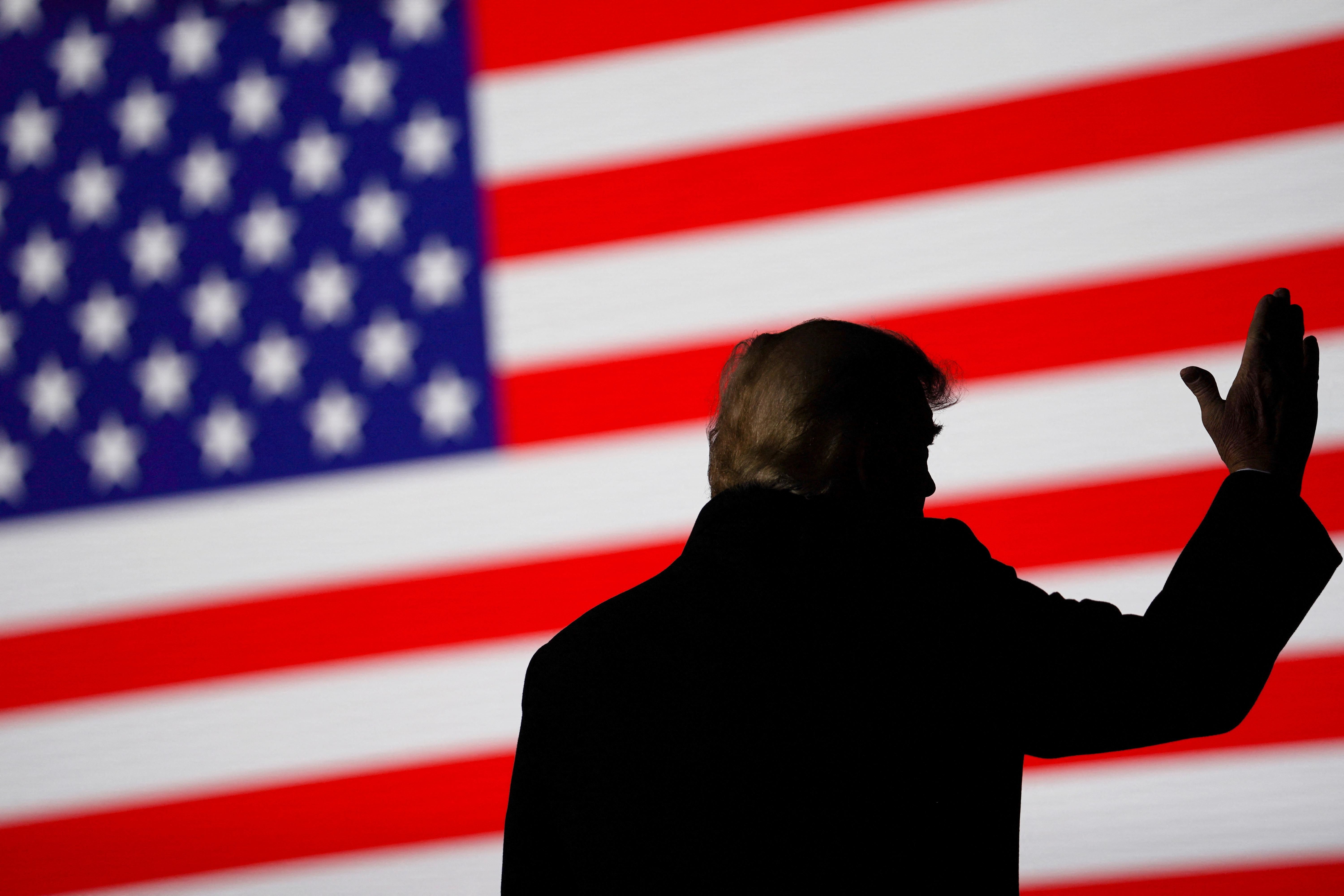What We're Watching: Trump's tax returns set to go public, Japan stuns markets, Biden braces for migrant surge, India raises China alarm
Trump's tax returns set to be released
The House Ways and Means Committee voted yesterday to release Donald Trump's tax returns from 2015-2020 — a move the former president’s team has characterized as a politically motivated attack by Democrats in the House, who are set to lose their majority when the new Congress is sworn in on Jan. 3. It may be days before all the filings go public, but committee members revealed late Tuesday that the IRS failed to audit Trump during his first two years as president. A report issued late Tuesday also highlighted some information from the filings, including that Trump had positive taxable income in 2018 — for the first time in more than 10 years — and paid nearly $1 million in federal income taxes that year. But as of 2020? Trump had reverted to reporting negative income … and paid no federal income tax as a result. Democrats on the committee explained that they carefully followed the law with this vote, invoking a century-old statute, but some Republicans say this could lead to increased use of exposing private tax info for political means.
Japan's stealth monetary policy move
The Bank of Japan made heads turn and shocked markets Tuesday when it abruptly announced it would tweak its controversial yield curve control policy. (For all you non-economic nerds out there, this is meant to boost economic growth and fight deflation by keeping the yield of 10-year debt bonds near 0%.) But the policy has arguably been doing more harm than good since Sept. 2021, when inflation started to make a comeback after a decade. Both have helped kill the yen in 2022. What's more, Japan sticks out like a sore thumb among major economies because it has stubbornly resisted calls to raise interest rates to tame inflation. BOJ Gov. Haruhiko Kuroda insists that his bond-yield "pivot" doesn't mean Japan will soon ditch its ultra-loose monetary policy to catch up with the rest of the world. Yet it certainly looks like the central bank is moving in that direction — without saying it out loud. "A stronger yen is good politically for [PM Fumio] Kishida and will help lower the cost of energy imports," says Eurasia Group analyst David Boling. "But higher interest rates may hurt lots of zombie firms in Japan that have gotten used to zero interest rates."
Biden throws in the towel on Title 42
There's a big US immigration crisis in the works — and the Biden administration seems to think it can no longer stop it. On Tuesday, the government agreed to halt its legal challenges to the expiration of Title 42, a Trump-era rule that allows US authorities to expel asylum-seekers on public health grounds that's set to expire on Dec. 21. But the White House also asked the Supreme Court, which on Monday issued a temporary stay on the order, to keep it in place until at least after Christmas. The situation is tricky for President Joe Biden, who publicly says he wants to scrap Title 42 — mainly to appease the pro-immigration left wing of his party — but privately fears a surge of migrants at the southern border once the rule is lifted that Republicans will use to slam his administration. That'll never happen if tough-on-border-security Republican governors of southern states get their way with SCOTUS, so things might get ugly if the court sides with Biden. Red states are threatening to send more migrants to blue states, some of which have already declared states of emergency to deal with the influx of asylum-seekers. What happens next? SCOTUS might accept Biden's final extension before scrapping Title 42 or hold off for weeks, even months, to consider Republican challenges. Meanwhile, thousands of migrants across the border in Mexico will remain stuck in a legal limbo.
India talks tough on China
India’s foreign minister has warned that it has scaled up its military presence along the country’s border with China to an unprecedented level. The move doesn’t come as a surprise. As Signalista Waj Khan noted in our Monday edition, India remains ill-equipped to handle the latest round of clashes between Indian and Chinese troops at points along their disputed border. Compounding the problem for India, the front has shifted east in a sign that the conflict is expanding, none of India’s foreign policy moves to punish China seem to have restrained the provocative behavior of Chinese troops, and the perception has grown that India’s government hasn’t done enough to show strength at the border. What’s new is that this month’s resurgence of border violence has given domestic critics of Narendra Modi’s government a chance to call Modi weak on China. In particular, Rahul Gandhi, leader of India's main opposition Congress Party, has warned that Chinese soldiers are preparing for war and "thrashing" Indian soldiers at the border while the Indian government does nothing. We’re watching to see if political pressures inside India push Modi’s government toward an escalation that will trigger more violence.
